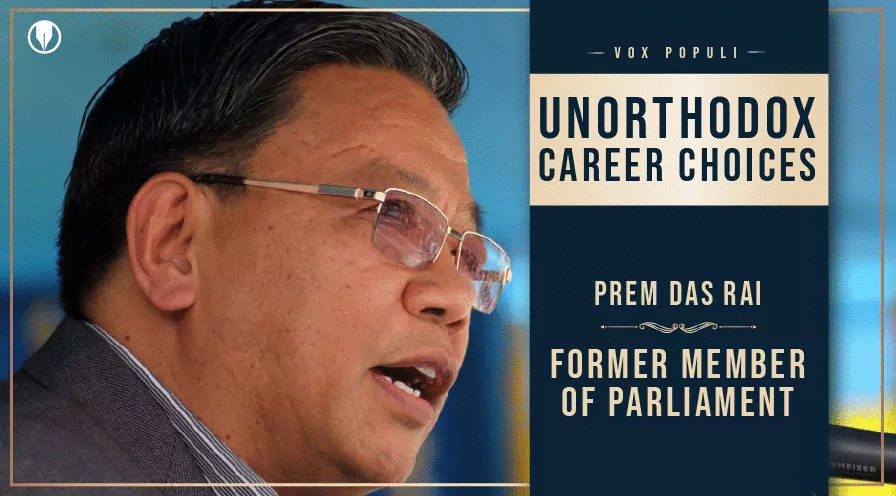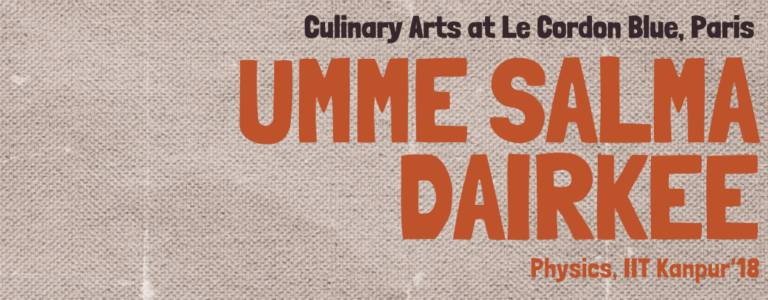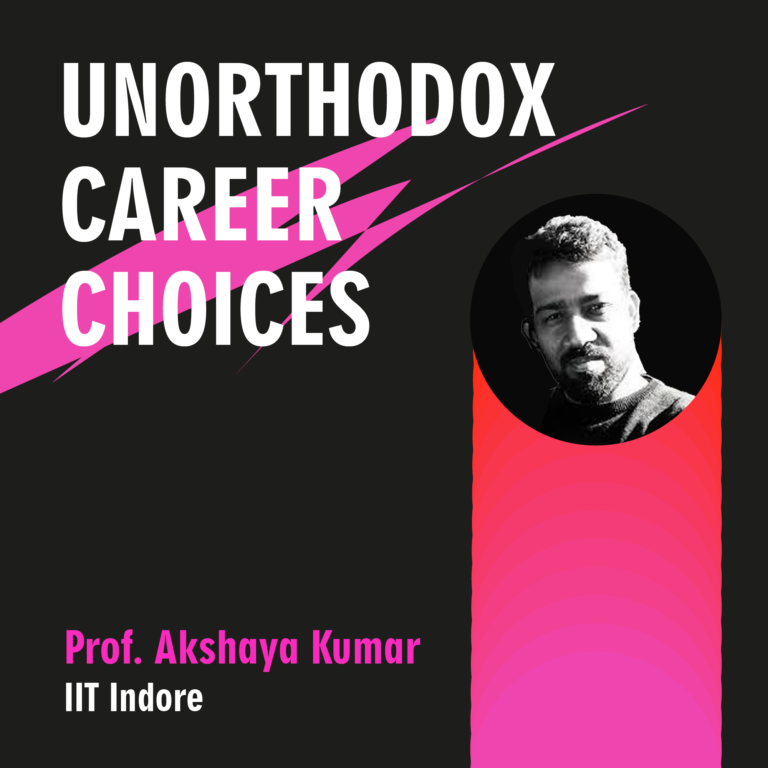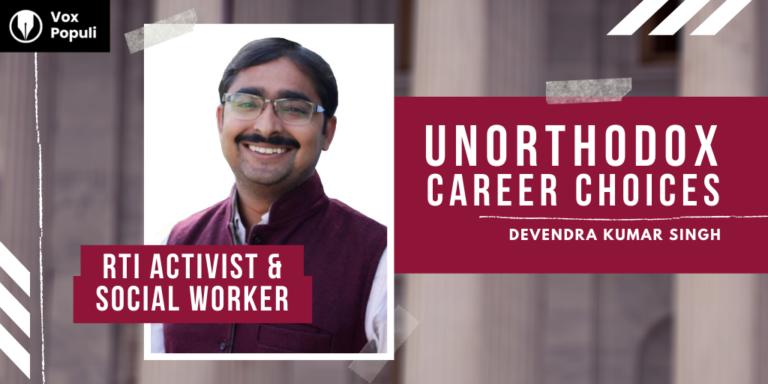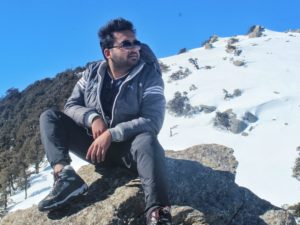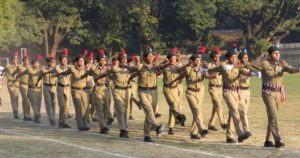Vox Populi brings you the eighth edition of the series Unorthodox Career Choices. We interview people who have taken a leap of faith and bring their stories to you. This edition brings you the story of Prem Das Rai, a distinguished alumnus of IITK from the batch of 1976. He is a former member of Parliament who represented the people of Sikkim for 10 years in the parliament. He is the first and the only member of Parliament with degrees from both an IIT as well as an IIM. Do give it a read to know more about his journey and how IITK affected his career choice.
————————————————————————————————————-
How did you get motivated to join politics? How did you start off? Tell us the story.
To understand my journey, I need to tell you about my father. Around 1935, he got interested in the independence movement of India and was influenced by socialists like JP Narayan, Madhu Limaye and others. Concurrently, there was an ambiguity if Sikkim was going to join the Indian Union or be a separate country. And in this connection, he came back to Sikkim, joined forces with people supporting democracy to form the Sikkim National Congress. To cut a long story short, I would say that it was my father who ideated and embedded the spirit of democracy in Sikkim. Hence, this was table talk in our home and it influenced me deeply.
Meanwhile, in 1960, I went to Mussoorie for my schooling. After that, in 1971, I joined IITK. In 1975, Sikkim finally merged with India as the 22nd state of India. So, I often tell people that I entered IITK as a foreigner and left IITK as an Indian, unique! After IITK, I joined IIM Ahmedabad, which brought me to a well-paying and comfortable job with the Bank of America (BoA) in Calcutta(now Kolkata) in 1978.
1979 was the turning point in my life when I visited Gangtok. My father, who was then in the government, asked me to call on the first Governor of Sikkim, Shri BB Lall, an ICS officer. I went to meet him, and his first question was after I told him proudly that I was at BoA, “What! You’re serving the Bank of America and not your own country! You’re wasting all your time and effort. We need you back in Sikkim.” So you can imagine that with a father who has ideated the concept of democracy in Sikkim, it wasn’t difficult for me to leave my well-paying job and come back to Sikkim. At that time, Bank of America offered me a princely salary of 5000 rupees a month. And the salary when I started off in Sikkim was just 790 rupees per month (laughs)! Nevertheless, my mother was most delighted to find out that I’d be coming back home.
Returning to Sikkim, I involved myself in some interesting projects but the most special one I led was setting up an Amul-like cooperative dairy facility. That project gave me a lot of insight into how public policy works. It was finally in 1993 I started working in the newly formed opposition, the SDF Party. Now, over 25 years in politics! In 2009, I was given a ticket from the Sikkim Democratic Party (SDF) and I served the people of Sikkim for two terms in the Parliament!
Before joining politics, you were a prolific entrepreneur and also the editor of “The Gangtok Times”, can you tell us more about those days?
When I left the government, I needed to do some economic activity to financially support my family. So, I became an entrepreneur and started a small computer company. Then I launched a newspaper. Today you can simply set up a portal, shift to social media and run a media company. It was difficult to run a newspaper back then. It was difficult to get people to edit papers.
From all the work that I immersed myself in, I learned some important skills such as managing people, communicating effectively, judging when to move forward and when to move back. These skills are very important for politicians to have. I think that ultimately, everything is about entrepreneurship; be it opening a business, working with communities or politics!
Tell us about a regular day in your life these days.
A day in my life would almost entirely involve meeting people, my seniors, party leaders and the chief minister. Apart from that, it would involve attending functions, especially with the panchayats, interest groups and civil society. So almost throughout the day, I would be meeting people, trying to understand their concerns, looking at why a particular problem is emerging and what can be done about it.
I get up very early in the morning. It is when I spend time with my family and do my yoga, reading and reflecting.
Do you think that acquiring a public office takes away your privacy, personal and family life? If so, how do you deal with the constant media attention and social media trolling that most popular politicians face today?
Constant media attention is inevitable once you are in the public eye. Everything becomes transparent and you cannot keep a secret. So accordingly, my work needs to be very principle centric.
Coming to social media trolling and memes, they might be offensive but must be taken in the right spirit. They often give you feedback which is honest and couldn’t have been told otherwise. Hence, I try to take feedback from trolls and memes rather than viewing them negatively.
The perception of politics among common people is very negative and characterized by a lot of corruption, dirty tactics and lack of ethics. Did your perception of Indian Politics change after becoming a part of it?
The fundamental issue with politics is that politics is about volunteerism. You are expected to want very little for yourself but give away most of what you have, in terms of energy, time or whatever else that matters. During the freedom struggle, politics was almost entirely structured on selfless volunteerism. But now in the 21st Century, we have lost most of that commitment.
Politics has become hugely problematic by way of money being poured in. You need to spend huge sums of money to win elections and this money doesn’t come from anywhere else but through a very negative process. Hence, the system is undoubtedly corrupt.
However, I would argue that there are enough ‘clean people’ within that system. That is why we have a polity which may seem to be working. So I would say that we are at the crossroads at this point and it is arguably very difficult to change but nonetheless, we must.
What we generally see in today’s politics is the lack of education among politicians. So, you being one of the most educated politicians out there, why do you think educated people do not enter politics and how can we change that?
There is a perception issue about what education is! Many of my colleagues, who don’t have a degree, are very well educated on the skills that a politician requires.
Hence, there is a misbelief that only the IITs and IIMs produce the best. A politician needs many more skills and abilities, such as a sense of history, a sense of social science and most importantly, empathy. So, I would argue the reverse. That there are enough educated people in politics ensuring diversity of views and perceptions. We need to correct the stereotypical perception of what qualifications are required for politics.
Did coming from a political background help you attaining a seat? If yes, then for young people interested in joining politics who do not have a family background in politics, where do you think they should start?
Definitely, it helped. I picked up some skillsets because of my father’s mentorship. Politics is a game of real understanding of the human spirit and about humanity. If there are young political enthusiasts in IITs, they should devote their time to wonderful books of history of our democracy, social sciences, the ideology of Karl Marx, modern neoliberalism thought and the like. Look at those books from the perspective of the Constitution of India. Only then you’ll understand the ideology driving a political party. Also, you’ll have to work in a social venture, in which you’ll work with farmers, grassroots operators, activists just to understand the dynamics of politics. There is no explicit pathway that I can prescribe. It is a journey of learning. After getting a quality education from the Indian institutes, don’t rush to foreign countries for white-collar jobs. Try to stay back here. I would love to mentor any student from IITK who is passionate about politics and wants to pursue it as a career. It’s an open invitation.
How was your experience of representing the people of Sikkim at the parliament for 10 years? What were the major decisions you took that created a social impact?
Not everyone gets this opportunity, and I feel privileged to serve my people and the nation. When you enter the Parliament, you need to be quick-witted to come up with optimal solutions. It took me a couple of years to efficiently use the tools Parliament provides to be heard and express your electorate’s voice. I participated in many debates wherein you can formulate the questions and views, especially those affecting your state and region.
During my tenure, I was a part of many Parliamentary Standing Committees such as the Finance Committee, the Subordinate Legislation Committee, the Ethics Committee, the IT Committee. I also made a Private Member’s Bill related to bamboo production in India. In 2015, my idea was picked up and legislated by Parliament. Bamboo is now defined as a grass and not a tree and made independent of the Ministry of Environment, Forest and Climate Change (MoEF) oversight. China was able to amass billions of dollars through Bamboo production and exports, while we haven’t made even a billion or so. This disparity can now be overcome due to this amendment.
I also represented India along with 59 other MPs in the United Nations in 2018, where we looked at multilateralism. I was seconded by the Parliament to become a member of the Executive Committee of the Commonwealth Parliamentary Association. I was also the Chairperson of the Library Committee and the Fellowship Committee in Parliament. Apart from this I also served as the Secretary-General of the North East MPs Forum.
Coming to Sikkim, I helped in creating a Bill for the Sikkim State Assembly which was related to sustainable development goals. Unfortunately, it didn’t become an act. We also founded an organization called, ‘The Integrated Mountain Initiative’. It focuses on empowerment, ecology and the well-being of the mountain communities. I was also a part of the program SAATHI. It aims to counteract the menace of drugs in the school system. We also ran a program called EQUIP (Education Quality Improvement). GoI recognized the program and has adopted it. It aims for improving the existing capacities of educational institutes. I’m a part of the Universal Basic Income Program running in the country, and I’ve written extensively about it.
What kind of problems do you face when you want to take an initiative or implement it? How do you tackle them?
In any program that you want to implement, you’ll face a multitude of problems. It’s because of the difference in perspectives amongst the concerned individuals and stakeholders. The questions you need to answer for any kind of project you work on are: How do you seek cooperation and how do you collaborate? One of the challenges was to get funds from the Parliament for local area development. If you’re in charge of the fund then you can make the most of it. Rainfall and landslides can also cause a lot of obstacles in local projects. Even as we speak today, it has been pouring since last night. To handle these kinds of things one must be efficient in project management. It’s tough and these challenges will always remain.
Tell us about your experience at IITK. Are there any memories that you would like to share?
I was in hall 3. I had many friends in the senior batches. In fact, Rakesh Gangwal (co-founder of Indigo) is one of my senior batchmates and a close friend amongst the many. I used to play a lot of sports on campus. I was the captain of the IITK football team. I got some flavor of politics on the campus itself. I ran for the general secretary of sports in the 4th year. I lost very narrowly to my friend, Arun Shukla. Later on, I understood that this fight was between ideologies. I was backed by the ideology of the communists and he was backed by the ideology of the RSS (laughs)!IIT was a lot of fun, a lot of bull sessions. We used to regularly go to hall canteens for chai, fried rice, chow mien. We also had that thick aloo paratha for breakfast on Sundays. We had a magazine called Spark and there used to be a competition organized by them called the Spark Cycling Race. I got 25 rupees for winning that and I spent all of that plus much more for giving a treat to my friends at the canteen!
The entire Computer Centre had only one huge computer, the IBM 370 and it used to be very cold in there due to the air conditioning. So summers would be made palatable by doing some computing work. I also remember spending some valuable time at the library, which I must say was one of the best places on campus. Next year my spouse and I will be coming to campus for the 45th reunion with the batch of ‘76! I doubt if COVID will allow us (laughs)!
How do you compare other ways of making a social impact like working with an NGO or joining civil services vis-à-vis politics?
Politics is the ultimate way to bring about any lasting societal change. The power of the legislation is the final form of public policy. But to start with politics, first, you’ll have to work for smaller organizations like NGOs. Learning the dynamics of how to deal with people, building empathy, understanding nuances of solving a societal issue, etc are very well understood by working in an NGO. In India, civil society organizations are small in size and usually driven by one person which becomes a limiting factor. But I think these are also needed especially during this pandemic. The NGOs have done a marvelous job in feeding millions of daily wage laborers and helping them get to their homes. Every effort in solving our nation’s challenges is always welcome, especially if they are from citizen initiatives.
Lastly, what is the message you would like to give to the current student community at IITK?
You are very privileged to be educated in IITK and you should value this because one, it is very difficult to get into an IIT and two, you have the responsibility of keeping the legacy and brand of IITK alive which the alumni have built over the years. You must have a sense of building the nation. If you are getting the country’s top educational resources then you should give it back to the country, give it back to your community, give it back to society.
Whatever you do, think of India and solve the challenges we have as a nation and there are plenty. If you want to enter politics, come talk to me, I would be very happy to mentor.
——————————————————————————————————————————————————————————————————-
Credits: Aaryan Mehar, Abhimanyu Sethia, Aditi Bajpai, Ananya Gupta, Varun Soni
Editor: Sarvesh Bajaj
Poster Design: Raj Varshith Moora




